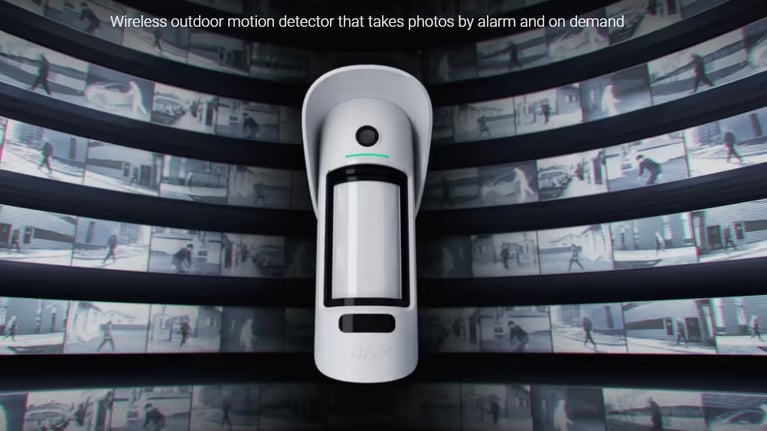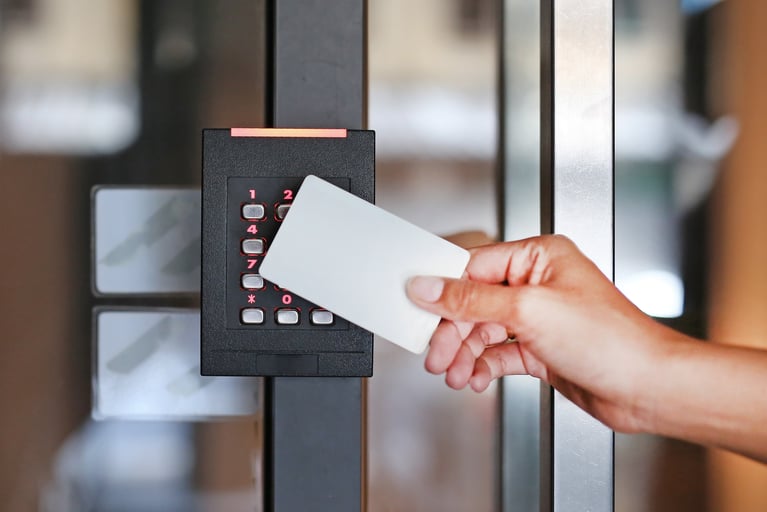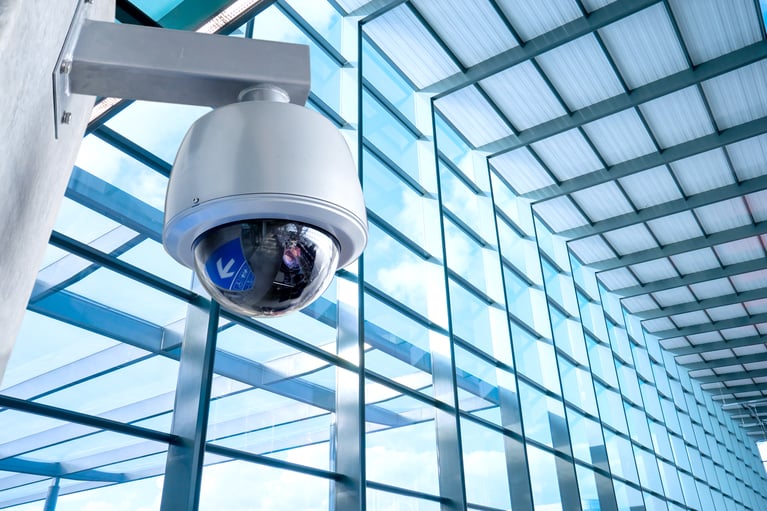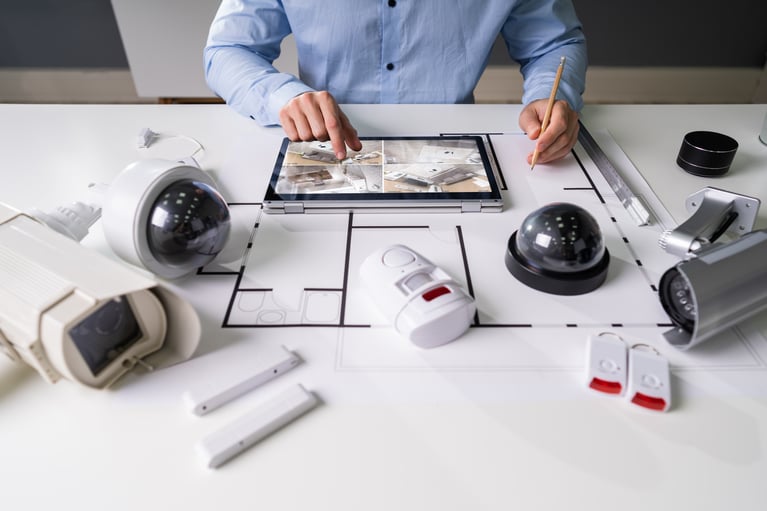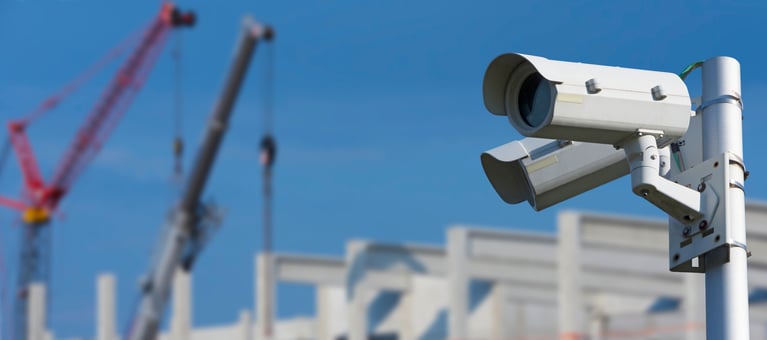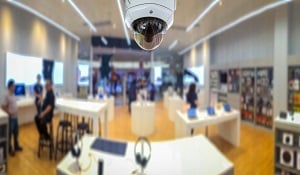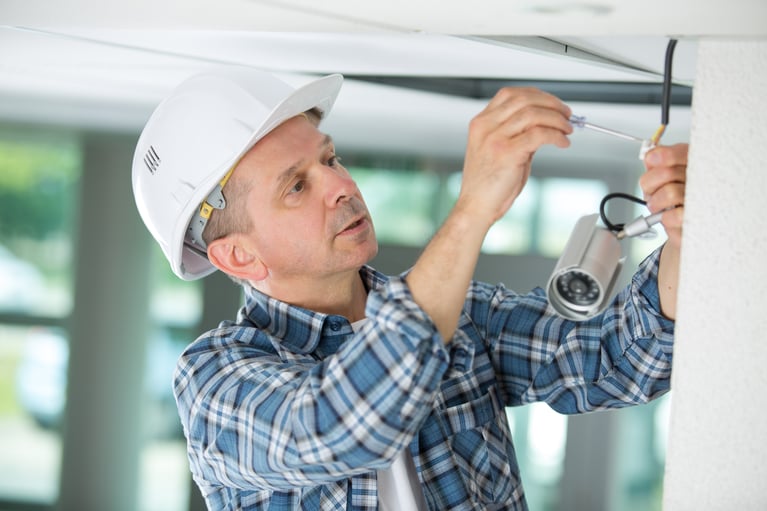.jpeg?width=300&name=AdobeStock_299393856%20(1).jpeg) With COIVD-19 quickly spreading around the world, many businesses are temporarily shutting down to help control the outbreak. While it might seem like shutting down would be an easy process, it’s much more involved than just locking the door and turning off the lights.
With COIVD-19 quickly spreading around the world, many businesses are temporarily shutting down to help control the outbreak. While it might seem like shutting down would be an easy process, it’s much more involved than just locking the door and turning off the lights.
Leaving your building unoccupied could leave you vulnerable to vandalism, theft, or just plain old maintenance troubles. Even a small problem unchecked can turn into a major issue in a few days. Follow these safety procedures to keep your unoccupied property secure during the COVID-19 outbreak.
Property Security
When you decide to leave your building, it’s important to create a plan that lists the precautions you’re taking to keep your property secure. This plan should include aspects like how often you (or someone) is going to visit the site, what you’re going to check, and any other security measures that you’re going to implement. Write it down and make sure that all involved team members are aware of the plan and understand their roles.
Physical Security
Secure all the doors and windows — even ones that you think could be “inaccessible” — to prevent unwanted entry. Don’t forget about roof hatches and vents. Not only would an open vent pose a security risk, but you also don’t want to come back to find a flood from rainwater.
Security Systems
Ensure that all your security systems are functioning properly. That includes door/window alarms, access control systems, and CCTV security cameras. Keep security cameras recording in case of a break-in. If possible, set up your security cameras and access control systems to function remotely. That way, you can keep an eye on your property without having to leave your home.
Make the Property Seem Occupied
Check all the lights and check that they’re operational. Just because you’re not there, doesn’t mean that criminals need to know that. Making your property seem occupied will deter criminals. Maintenance activities like mowing the grass and removing leaves can also help sites seem occupied.
Perform Regular Inspections
Just because you followed all the security guidelines doesn’t meant that you should just leave and forget about it. Perform regular security inspections of your property. Sweep both the exterior and the interior of the building, checking on all security systems in the process.
Communicate
Whether it’s a relationship, business situation, or yes, even a shutdown, communication is always key. When you leave your property unoccupied for any period of time, letting some key people know about it could protect you from liability. Your first phone calls after making the decision to leave your building unoccupied should be to the following:
- Insurance Company
- Local Authorities
- Security Company
- Utility Companies
- Post Office
- Vendors
Insurance Company
It’s easy to overlook your insurance company, but if your building is robbed or vandalised during the shutdown, you’re going to want their help. Keeping them informed right off the bat is a great way to get ahead of issues before they happen.
Review your policy to make sure you understand the coverage and let your insurance company in on your security plan. They might even have some helpful tips to add. They could also have their own regulations that you need to include and follow. Review and update all contact names and numbers as well.
Local Authorities
You should inform both the police and fire department that your property is going to be unoccupied. Give them your contact information in the event of an emergency. If possible, ask the police to include your property in one of their regular patrols, especially if you’ve noticed signs of vandalism in the area.
Security Company
Your security company can monitor camera and alarm systems. In the event of a break-in, they inform you immediately. If they know that the property is unoccupied, they’ll know to be extra vigilant with their monitoring.
Utility Companies
You’re not going to be using as much electricity and water as when the building is in full operation. Letting your utility companies know that the property is going to be unoccupied will help to ensure that no bust pipes or unusual activities are taking place while you’re gone.
Post Office and Vendors
You don’t want mail and packages piling up while you’re gone. Call the post office and suspend mail delivery services to the building or forward mail to another location. Don’t forget to let your vendors know you’re shutting down as well. They won’t be happy with you when they show up with a delivery and no one is there.
Site Maintenance
Small problems can quickly become big problems if no one is around to keep an eye on them. Before you leave the building, make sure that all sprinkler systems, sinks, toilets, or any other water-using systems are secure and not leaking. Even the smallest drip over a few months can cause major damage to your building or equipment. Check for roof leaks and clogged drains as well.
Turn off all unnecessary electrical equipment and disconnect the power. It’ll save money on energy costs, but more importantly, it’ll reduce the risk of electrical fire.
Outside the building, remove any debris or materials that could potentially catch fire or pollute the ground. Look for things like oil or gas canisters, trash receptacles, or even piles of leaves. Also remember to lock any dumpsters on the property to prevent unauthorised dumping while you’re away.
Weather Preparation
Criminals aren’t the only thing you need to worry about; the weather can be just as destructive and expensive. If you’re not sure how long you’re going to be out of the property, it’s best to plan for all possible weather events.
Obviously, make sure all doors, windows, and roof vents are closed and sealed tight. Any exterior furniture or decorations should be moved inside. Just in case, create and maintain a written emergency response plan along with contact numbers in the event of catastrophic emergency like a cyclone, fire, or flood.
Low temperatures can also pose a threat to water pipes. Keep your thermostats set to at least 13 degrees to prevent freezing. If you’re worried about mold from humidity, setting the thermostat at 29 degrees will help bring down moisture levels.
Documentation
Taking detailed notes, including photos, of all safety precautions will not only help with potential claims in the future, but they’ll also remind you of what you did. If you’re inspecting the property a month after the shutdown and you notice a door is slightly ajar, has it always been like that or is something else going on?
Securing Your Property with Four Walls Security
Don’t just ask the last one out to turn off the lights and lock the door. Taking the proper steps to prepare your property for vacancy is essential to keep it secure during these uncertain times. You should create a plan, check all window and door locks, ensure all security systems are operational, notify the proper authorities, perform maintenance procedures, prepare for any possible weather conditions, and document everything! Then, remember to regularly visit the property and check that everything is still secure.
If you need help checking over your property and making sure that everything is prepared, contact Four Walls Security. We can send an expert security consultant to your location to look over the site and determine the most effective way to secure the premises and identify any risks that may exist. Don’t be unprepared, secure your property today.


